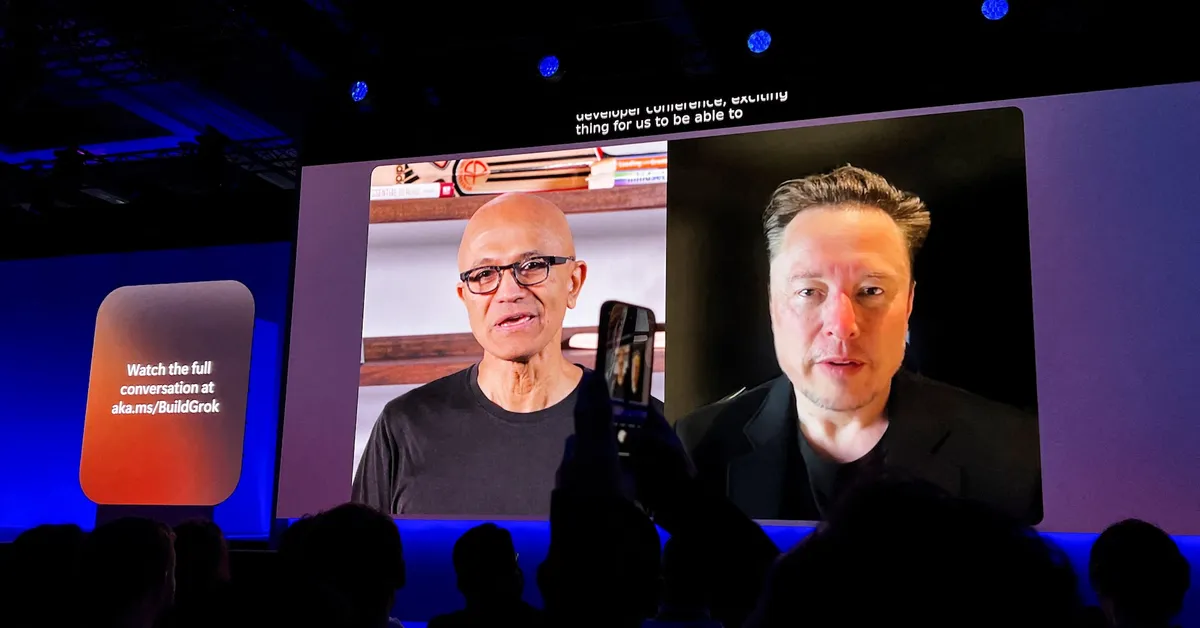
At Microsoft's annual Build software developer conference held in Seattle, Washington, significant announcements highlighted the evolving relationship between Microsoft and OpenAI, the organization behind ChatGPT. The conference underscored Microsoft's strategic shift as it navigates the competitive landscape of artificial intelligence.
Historically, Microsoft has invested heavily in OpenAI's research initiatives. However, recent developments suggest a more neutral approach, as the tech giant has displayed a reduced eagerness to commit vast sums of money to fund OpenAI's projects. Instead, Microsoft is expanding its collaborations with a wider range of AI players, focusing on enhancing sales and managing operational costs effectively.
During the keynote address, Microsoft CEO Satya Nadella emphasized that new offerings from competitors like xAI, Meta, and others will receive the same reliability assurances as OpenAI models hosted by Microsoft. "That's just a game-changer in terms of how you think about models and model provisioning," Nadella remarked. This pivot allows developers to mix and match various AI models, fostering innovation and creativity.
One of the standout features introduced at the conference is the new GitHub Copilot, a sophisticated coding agent designed to assist developers in programming tasks. Unlike earlier iterations of Microsoft's AI coding tools, which could generate snippets of code based on existing developer actions, this agent takes a more proactive approach. Developers can provide a few instructions—like describing a software bug and outlining a strategy for resolution—and the agent will autonomously work on coding solutions, alerting the developer for review upon completion.
Microsoft's vision extends beyond individual developers; it aims to enable businesses to create their own AI agents tailored for specific tasks. The primary offering in this domain is called Azure Foundry, a service that allows companies to build customized agents using their choice of AI models. According to Asha Sharma, corporate vice president for product of Microsoft AI platforms, these agents will likely be constructed using a diverse array of AI models, enhancing adaptability and functionality.
In a significant move, Microsoft announced that it would provide access to xAI's Grok 3 and Grok 3 mini models, along with Meta's Llama models, and offerings from Mistral and Black Forest Labs. This expansion brings the total number of models available to Azure customers to over 1,900. Notably, these models will operate within Microsoft's own data centers, allowing the company to assure availability and performance during peak demand periods.
Sharma indicated that Microsoft plans to introduce even more popular models in the near future. "One of the most important parts to be able to build an app and seamlessly use the most popular models is making sure your reserved capacity with Azure OpenAI starts to work across these models," she stated.
Another groundbreaking announcement from Microsoft was the creation of a system that assigns digital identifiers to AI agents, treating them similarly to human employees within corporate infrastructures. This revolutionary concept could unlock remarkable new capabilities, but it also raises important questions regarding the future impact of AI in the workplace, as noted by Bob O'Donnell, president and chief analyst at TECHnalysis Research.
The developments showcased at the Build conference signal a pivotal moment for Microsoft as it navigates the rapidly changing landscape of artificial intelligence, solidifying its role as a leader in the space while fostering innovation and collaboration across various AI technologies.